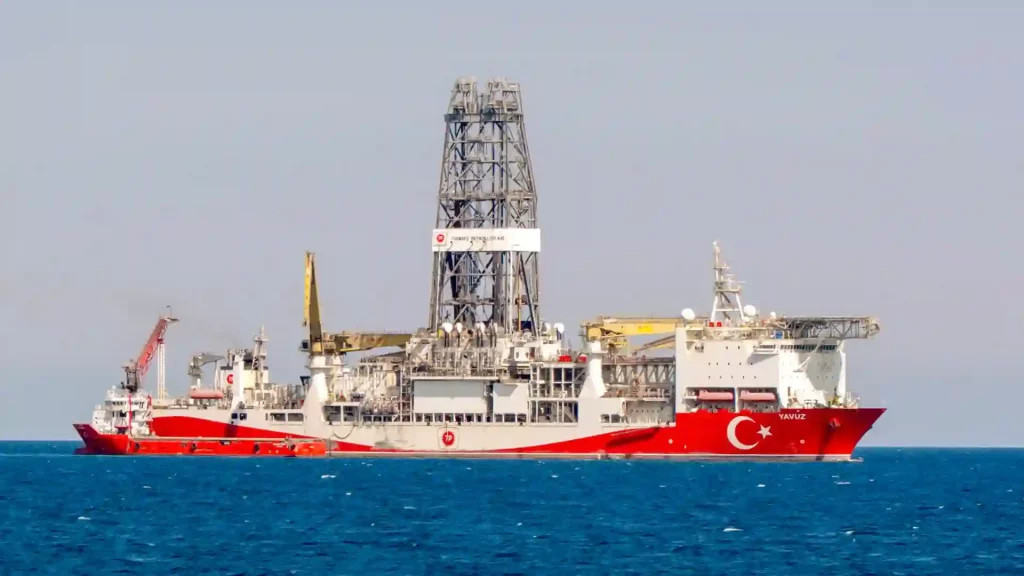After a Cabinet meeting in Ankara’s Presidential complex on Monday, December 27, 2022, Turkish President Recep Tayyip Erdogan announced that the total natural gas reserves discovered by the country in the Black Sea are now tallied at 710 billion cubic meters (bcm).
The market value of the reserve is 1 trillion USD. These new numbers were determined after a new site was located and the old figures were revised. Furthermore, he added that the new explorations will pave the way for fresh explorations in similar geological terrains and that Turkey shall soon start new drilling at the earliest,
The drillship Faith discovered a new reserve of 58 bcm in the Caycuma-1 field 3023 meters below the sea. Previously, the Sakarya field that recorded a reserve of 540 bcm was believed to be the largest field of natural gas in the Black Sea. These figures were recently revised to 652 bcm. Turkey says it will drill 13 wells in Sakarya and go live in 2023.
It is predicted that once the country starts piping the gas from the first quarter of 2023, Turkey will be able to fulfill one-third of the entire country’s energy needs as production peaks. Additionally, the Caycuma-1 field may be attached to the Sakarya line that will finally be connected to the national grid. Previously Turkey was highly dependent on other countries like Russia, Iran, and Azerbaijan for energy imports. Additionally, it imported LNG from Nigeria, the United States, Algeria, and Qatar.
However, the discoveries in the Black Sea may be an indication that the age of Turkish energy dependency will soon be over. President Erdogan also stated that Turkey might lay down a new pipeline from Azerbaijan and Turkmenistan to Europe to transport gas. The existing pipeline passing through Turkey into the Balkans has reached its capacity.
Turkey believes that the geopolitical conflict between Russia and Ukraine has benefited the country when it comes to rewiring the global energy trade. Again, in Russia, explosions have destroyed the Nord Stream gas pipeline passing under the Baltic Sea and halted the gas supply from Germany. Therefore, Russian President Vladimir Putin has expressed his interest in setting up a ‘gas hub’ in Turkey.
Turkey is not limiting itself to oil and natural gas to achieve energy independence. It is also striving to work with hydrocarbon resources in the Mediterranean sea. However, they are in dispute with Cyprus and Greece due to operations conducted in disputed water.
Slowly Turkey is getting a new nickname-the energy hub. So does that mean the country will play a key role in mitigating the ongoing energy crisis in Europe and all around the world? Also, what will it mean for the environment, or is Turkey prepared to deal with the environmental consequences? Will the new energy routes in Turkey follow sustainability? A new development has given rise to several questions, and only time shall reveal these answers.
